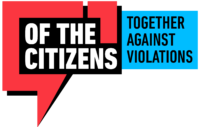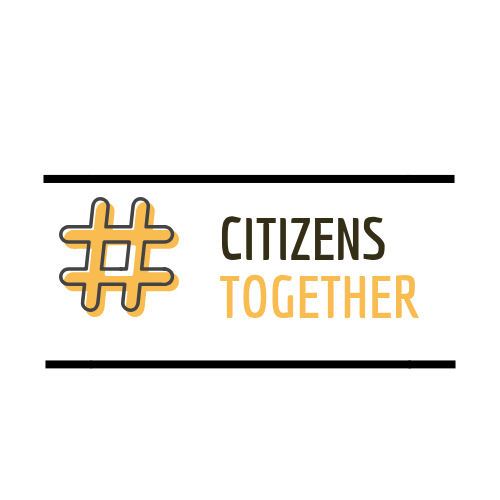Twenty-one members of the European Parliament (MEPs) have called upon the Narendra Modi government to immediately release the 15 activists and academics jailed in the Elgar Parishad case, the 13 activists and students for protesting the Citizenship Amendment Act (CAA) and Kashmiri activist Khurram Parvez without conditions.
In a letter addressed to Modi and other top constitutional authorities, including vice-president and Rajya Sabha chairperson Venkaiah Naidu, Union home minister Amit Shah, Chief Justice of India NV Ramana and Maharashtra chief minister Uddhav Thackeray, the members expressed concern about the treatment of activists “detained without basis as reprisal for their human rights work” and targeted “under anti-terror laws and labelled as terrorists”.
The MEPs highlighted three particular cases: the arrest of 16 activists and academics in the Elgar Parishad case, the continued arrest of 13 activists and students in connection with the protests against the Citizenship Amendment Act (CAA) and the detention of Kashmiri activist Khurram Parvez.
The MEPs expressed concern about the “systemic use” of the Unlawful Activities (Prevention) Act, (UAPA) 1967, to “quash dissent” and the alleged use of “illegal spyware” Pegasus against the Bhima Koregaon accused and the “planting of key digital evidence on their computers”.
Human Rights Defender Khurram Parvez has been wrongfully imprisoned for more than 100 days. In the last three and half months, his judicial custody has been extended multiple times.
Recently, a Delhi Court has once again extended the judicial custody of Parvez and two others namely Muneer Ahmad Kataria and Arshid Ahmad Tonch for 40 more days in connection with an alleged terror funding case.
The Asian Federation Against Involuntary Disappearances (AFAD) in a statement demands the release of Khurram Parvez. The statement strongly reiterates its call for the immediate release of its Chairperson Khurram Parvez from arbitrary detention. The Government of India has detained Khurram without charges for more than 100 days.
“Khurram, prominent human rights defender who is also the programme coordinator of Jammu and Kashmir Coalition of Civil Society (JKCCS) based in Kashmir, was arrested by India’s National Investigation Agency (NIA), following raids on his home and office in Srinagar on 22 November 2021. He was apprehended under the anti-terror Unlawful Activities Prevention Act (UAPA) allegedly for his involvement in terror-related activities. Mary Lawlor, UN Special Rapporteur on the situation of human rights defenders, was quick to come to Khurram’s defence publicly and emphatically stating, “He’s not a terrorist; he’s a Human Rights Defender”.
In December a panel of UN experts also urged Indian authorities to release Khurram Parvez. In the statement, the expert says, “We are concerned that one month after Parvez’s arrest, he is still deprived of liberty in what appears to be a new incident of retaliation for his legitimate activities as a human rights defender and because he has spoken out about violations,” the independent experts said.
“In view of this context of previous reprisals, we call on the Indian authorities to immediately release him and ensure his rights to liberty and security,” they added.
Khurram Parvez has worked extensively to document serious human rights violations, including enforced disappearances and unlawful killings, in Indian-administered Jammu and Kashmir. In his search for accountability, Parvez has been the victim of a number of incidents of reprisals reportedly for sharing this information with the United Nations, as documented in various reports of the Secretary-General and communications from UN special procedures mandate holders.
Since coming to power in 2014, Modi has sought to squeeze charities and non-profit groups that receive foreign funds. Greenpeace and Amnesty International are among the civil society groups that have had to close their offices in India.
Scores of human rights defenders and activists remain in detention under the draconian Unlawful Activities (Prevention) Act (UAPA) and other laws. They include the 15 human rights defenders linked to the 2018 Bhima Koregaon incident who has been accused of having links with Maoist organizations, based on evidence believed to be fabricated.
At least 13 activists arrested under the UAPA for their advocacy work against the discriminatory Citizenship (Amendment) Act 2019 remain in detention. The slow investigative processes and extremely stringent bail provisions ensure that those detained under the law are held in pre-trial detention for long periods.
“The office raids and foreign funding bans are part of the government’s strategy to harass and silence their critics,” said Josef Benedict, civic space researcher for the CIVICUS Monitor.
“The use of broadly worded anti-terrorism laws against activists, journalists, academics and students reflects a multi-year decline in the state of civic and democratic freedoms in the country.”
Journalists have continued to be targeted in India for their work and there have been concerns about the widespread surveillance of activists, journalists and others critical of the Modi government following the Pegasus spyware expose.
“The government must release all human rights defenders detained and come clean about its surveillance of activists and journalists as well as establish an independent and effective oversight mechanism to monitor all stages of interceptions of communications,” said Henri Tiphagne, national working secretary of Human Rights Defenders’ Alert (HRDA) India.
Source The Wire, Newsclick, UCA News, AFAD, UNHR



